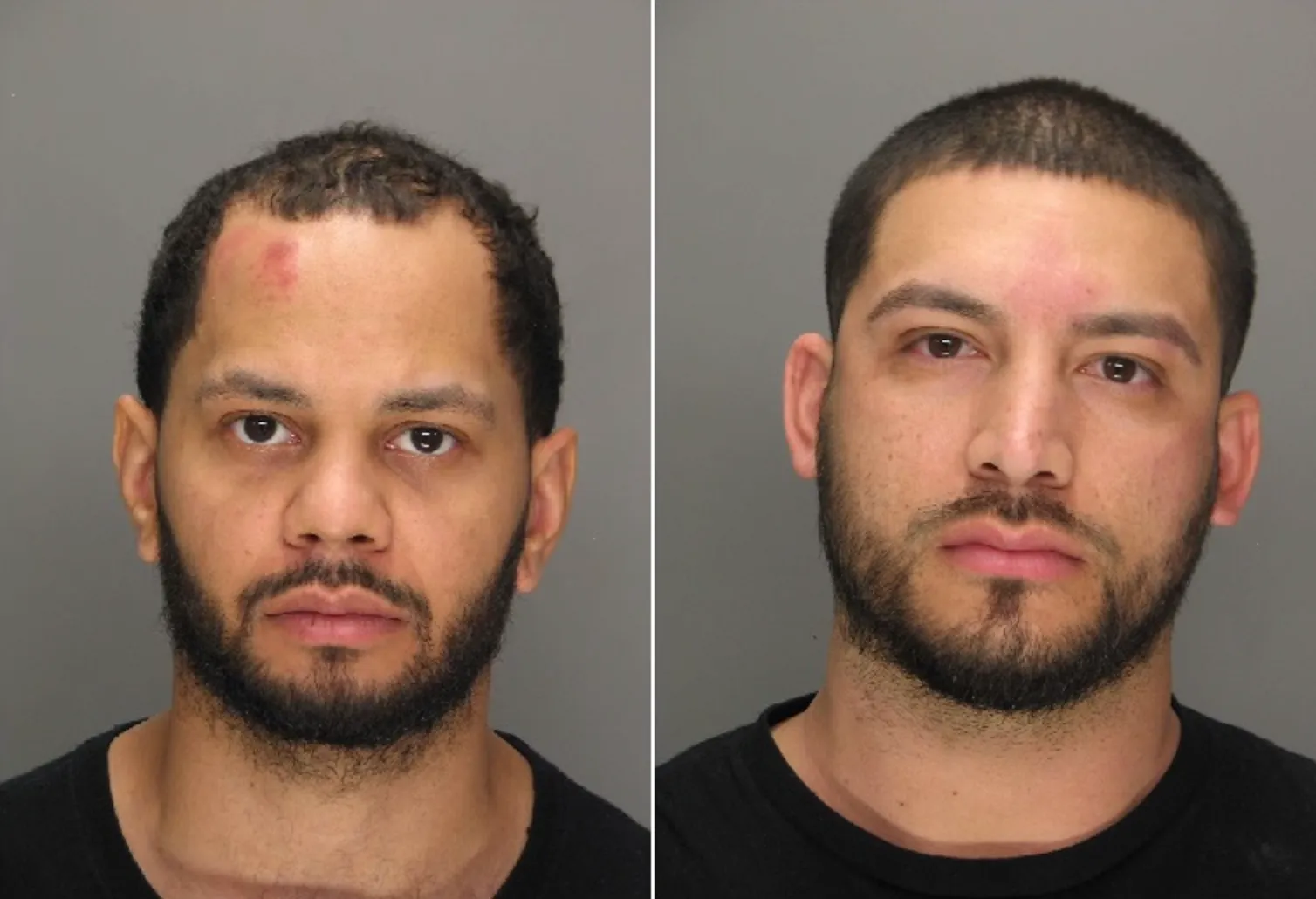‘Grandparent Scammers’ Face Federal Charges

Federal authorities have charged Robert Munoz (left) and Jason Rhodes (right) in connection with “grandparent scams” in Rhode Island and Massachusetts. Photo credit: Warwick, R.I. Police.
A federal criminal complaint charged Munoz and Rhodes with conspiracy to commit wire fraud and aggravated identity theft, according to a Justice Department press release. Both were released on unsecured bonds and GPS electronic monitoring.
Arrest by Local Police
The two men were arrested by Warwick, R.I. Police on March 8 after detectives received and started investigating the third complaint they had received in a week from local residents, who claimed that they had been contacted by scammers.
An elderly couple said they had already given $18,000 to a courier to cover “the bail for their grandson.” After some time, they were contacted again and asked for an additional $40,000. The scammers allegedly claimed their grandson was being sued for $100,000, with $40,000 needed as an immediate payment.
Police Intervene
The couple recognized this as a scam and contacted the Warwick Police Department, which set up surveillance in and outside their house while waiting for the courier to return. When Munoz and Rhodes arrived, police arrested them.
After a court-authorized search of their vehicle and a hotel room that was registered to Rhodes, police found more than $60,000 in cash. After that, Munoz and Rhodes allegedly provided the names and addresses of grandparent scam victims in Coventry, Newport, Cranston, Hopkinton, West Greenwich, East Greenwich, Smithfield (Rhode Island), Stanhope (Iowa) and Braintree, Hanover, Plymouth, Scituate, Cohasset, Stoughton and Lakeville (Massachusetts).
Also, police found a device that was in Rhodes’ possession at the time of his arrest that contained chat messages sent by Munoz with additional names and addresses of target victims and their grandchildren in Wisconsin, Illinois, Virginia, Kansas, Maryland, Tennessee, Iowa, North Carolina and New Jersey.
Munoz and Rhodes Collected $230,000 From Elderly Victims
Munoz and Rhodes, operating as couriers, traveled to various locations in Rhode Island and Massachusetts and collected approximately $230,000 in payments from unsuspecting victims in more than a dozen communities, prosecutors say.
The investigation remains ongoing, with the Justice Department looking for more potential victims.
Grandparent Scams
Grandparent scams are types of scams in which an elderly victim receives a phone call and is told that a member of their family, most often a grandchild, is in trouble financially and needs money. Often, the scam includes claims that the grandchild is in jail and needs bond money to get out.
In these cases, scammers identify themselves as someone in a position of trust, such as an attorney or a member of law enforcement. They often ask victims to withdraw cash for a courier to retrieve, as allegedly happened in this case. Since the money is handed over in cash, the transactions cannot be reversed as many electronic transactions can.
People who receive calls from scammers asking for payments in cash under any circumstances should be wary and avoid forking over cash. These fraudsters can seem convincing in their overtures– for instance, calling from a phone number that appears to be from an official entity or mimicking a grandchild’s voice with AI– but no legitimate authority will demand payments in cash or prepaid cards.
While fraudsters typically opt for untraceable payment methods, you should be wary of any unexpected demands for electronic payment methods, too.
Report Elder Fraud
You can report potential fraud against people aged 60 or older by calling the National Elder Fraud Hotline: 1-833 FRAUD-11 (1-833-372-8311). They can also advise on whether a request for money is really a scam.
The hotline is staffed seven days a week from 6:00 a.m. to 11:00 p.m.[ET]. English, Spanish, and other languages are available. More information about the Department’s elder justice efforts can be found on the Department’s Elder Justice Initiative page here.
Discover More Muck
First AI-Powered Lawsuit Exposes California’s Eco-Fraud Empire
Feature John Lynn | Apr 10, 2025

Former Child Soldier General Lied to Get Green Card
Report Strahinja Nikolić | Feb 27, 2025

Weekly Muck
Join the mission and subscribe to our newsletter. In exchange, we promise to fight for justice.
Weekly
Muck
Join the mission and subscribe to our newsletter. In exchange, we promise to fight for justice.






